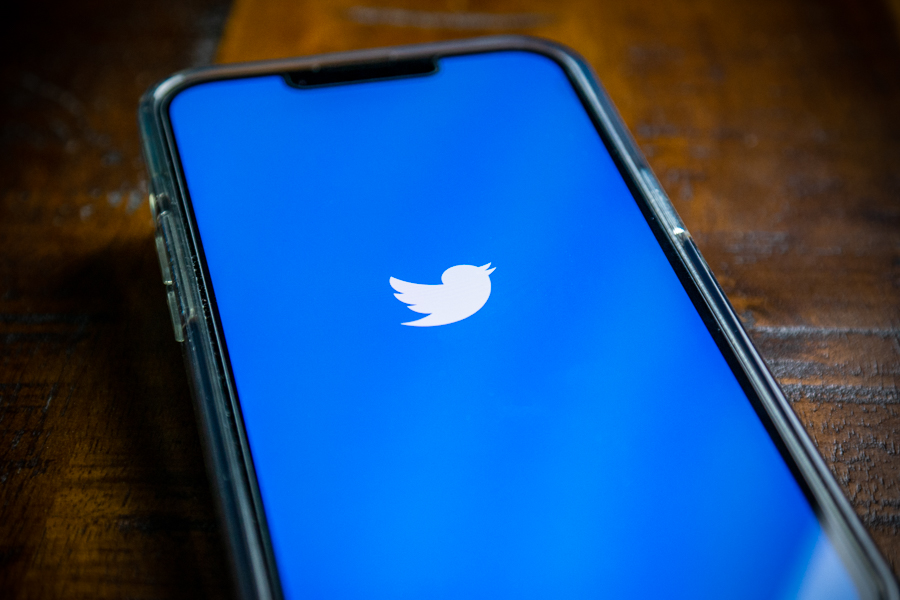Elon Musk’s acquisition of Twitter has had problems from the beginning, and it’s only gotten worse
Elon Musk’s recent takeover of Twitter has caused lots of skepticism among many people. “I think it’s just like this massive ego trip,” said Molly Reehl, a senior at South. “He paid way too much and he’s trying to fix it, but he’s trying to seem cool while also fixing it and it just isn’t working.” From mistreatment of employees to endorsing hate speech, Musk’s version of Twitter isn’t looking good so far and it’s only getting worse.
February 1, 2023
While not as popular among Gen Z as other social media platforms such as Snapchat and Instagram, Twitter has still had a major presence in recent years. In 2022, Twitter had over 237 million daily active users, according to Statista. With this high number of users, whoever runs the company potentially has a lot of power. As of Oct. 2022, that person is now Elon Musk. Despite what he says, many people feel that Musk’s significant overhaul of the platform has changed Twitter for the worse.
After purchasing 9% of Twitter’s share on the stock market in Apr. 2022, Elon Musk offered to buy the entire company for $54.20 per share (around $44 billion total), stating, “Twitter has extraordinary potential. I will unlock it.” The Twitter board accepted his offer by the end of the month. “We believe it is the best path forward for Twitter’s stockholders,” said Bret Taylor, the board chair at the time, in a public statement.
On May 13, Musk announced via Twitter that the Twitter deal was “temporarily on hold,” citing the need for additional information involving the number of fake/spam accounts on the platform. However, Twitter has been regularly disclosing estimates on the number of fraudulent accounts for years. In response to Musk’s announcement, Twitter communicated that it intended to follow through with its contract.
After lots of back and forth between Twitter and Musk, Twitter eventually filed a lawsuit in a Delaware court against Musk, claiming he was trying to escape the contract he signed and intentionally “damage Twitter in the process.” In response, Musk countersued and accused Twitter of withholding information about bots on the platform in an attempt to raise the value of the company, which Twitter denied.
Leading up to the day of the trial, Oct. 17, Musk’s lawyer filed a letter with the U.S. Securities and Exchange Commission (SEC) that stated Musk was willing to purchase the company at the originally agreed-upon price of $54.20 per share on the condition that the Delaware court immediately drop the case. Following this letter, Judge Kathaleen McCormick decided to postpone the case and give Musk and Twitter until Oct. 28 to come to an agreement on their own.
On Oct. 27, Musk tweeted, “the bird is freed,” a day before Judge McCormick’s deadline. This supposedly meant that his acquisition of the company was being finalized. Immediately after Musk’s takeover of the company, he started making significant changes, both to the platform and to the structure of the company. Twitter CEO Parag Agrawal, Finance Chief Ned Segal, and Head of Legal Policy, Trust, and Safety Vijaya Gadde were all fired the same day.
There has been a lot of skepticism around the takeover. “I think it’s just like this massive ego trip,” said Molly Reehl, a senior at South. “He paid way too much and he’s trying to fix it, but he’s trying to seem cool while also fixing it and it just isn’t working.” Reehl says that Musk’s version of Twitter is “ugly.” She goes on to say, “I’d probably prefer if there wasn’t Nazism or sexism just allowed [from] verified accounts that are directly endorsed by the person who’s running Twitter.” Reehl says there’s a reason why people like Kanye West, Andrew Tate, and Donald Trump were previously banned from the platform.
Owen Gilman, a junior at South, has similar thoughts. “I don’t like the dude at all, I think he’s an asshole and very full of himself and I think he gets in way too many people’s business.” He adds that Musk is “sucking up to a lot of right-wing media and a lot of right-wing politicians by … allowing their campaigns and hate speech to exist on his platform.” Gilman commented on the level of hate speech on the platform, saying, “I scroll through [Twitter] and I just see like either really racist shit or really homophobic shit or just like messed up things that people say.” He goes on to state, “I believe in free speech, but I think that to the level that I see it exist on [Twitter] is just extreme and I think it endorses and uplifts things that shouldn’t have a platform.”
The acquisition understandably caused some issues with advertising on the platform. “Uncertainty of this kind raises concerns among advertisers,” said Omnicom, one of the world’s largest advertising agencies by revenue. Dan Ives, managing director of Wedbush Securities, said, “If it becomes an essential street fight around hate speech, advertisers are going to run for the hills.”
In response, Musk published an open letter to advertisers on Oct. 27 in which he explained that his motivation for buying Twitter was that “it is important to the future of civilization to have a common digital town square, where a wide range of beliefs can be debated in a healthy manner, without resorting to violence. (…) Twitter obviously cannot become a free-for-all hellscape.” Musk even went as far as to say that “Twitter aspires to be the most respected advertising platform in the world.”
When asked about Musk’s “digital town square” vision, Reehl said, “I don’t think he’s making it any more free speech than before. (…) He just let a couple people who are causing major damage back on [Twitter].” She adds, “It’s just letting rich people get away with advertising. That’s the whole point. He wants to make money. It’s not a town square. That’s not his real motivation, that’s just what he says.”
Now that Twitter has been in Musk’s hands for a while, I think it’s a good time to look back at his influence on the platform. While Musk has been at the head of a handful of notable companies, such as Tesla, SpaceX, The Boring Company, X.com (now PayPal), and more, his lack of maturity has been notorious. You don’t have to scroll very far down Musk’s Twitter page to find memes you’d expect a pre-teen to be posting, not a man in his fifties. Gilman agrees, saying, “Every now and again [a tweet by Musk] comes through my feed and I’m just like, ‘Dude, what the hell are you saying?’” The way that Musk acts could be described as carefree, but I would argue that it is closer to careless.
Musk has carried this way of doing things over with him to Twitter. After taking over the company, Musk quickly realized he was running out of money. This caused him to cut around 50% of Twitter’s employees in early Nov. and tell the remaining employees to expect 80-hour weeks. He warned them of the possibility of bankruptcy if the company didn’t start making money fast. This is not the way to run a major company. Musk is driving Twitter into the ground if he thinks firing half of its employees, forcing extra work on the remaining employees, and threatening bankruptcy will be motivating. Musk was quoted in an employee Q&A telling staff to work with “a maniacal sense of urgency” and later sent out an email to the remaining employees describing his vision for “Twitter 2.0,” where he required staff ready to deliver “only exceptional performance” to click a link in the email. “Anyone who has not done so by 5pm ET tomorrow (Thursday) will receive three months of severance,” wrote Musk.
In addition to these major cuts, there have been many issues and struggles reported from within the company. A group of janitors whose contract with Twitter wasn’t renewed went on strike, a few former employees are suing Twitter over issues with their severance packages, and the company’s San Francisco headquarters had bedroom pods installed on empty floors. An anonymous source within the company told Forbes that there was no warning or information about the beds. “It’s yet another unspoken sign of disrespect. There is no discussion. Just like, beds showed up.”
I think Musk’s treatment of his employees shows how much he’s living in his own world. It appears that he decided to buy Twitter, realized it would cost him, and tried to back out. Then, after being forced to go through with the transaction, he immediately cut back as much as possible and pushed his remaining staff to their limits. He doesn’t seem to realize the impact he’s having on all these people.
Musk’s takeover of Twitter is still fairly recent and there is still the potential for a lot to change in the near future. The main question is if Musk has any way to build Twitter back up to what it used to be or if it’s just going to continue to plummet to its demise. How it’s looking right now, I think the latter is the most probable outcome.






